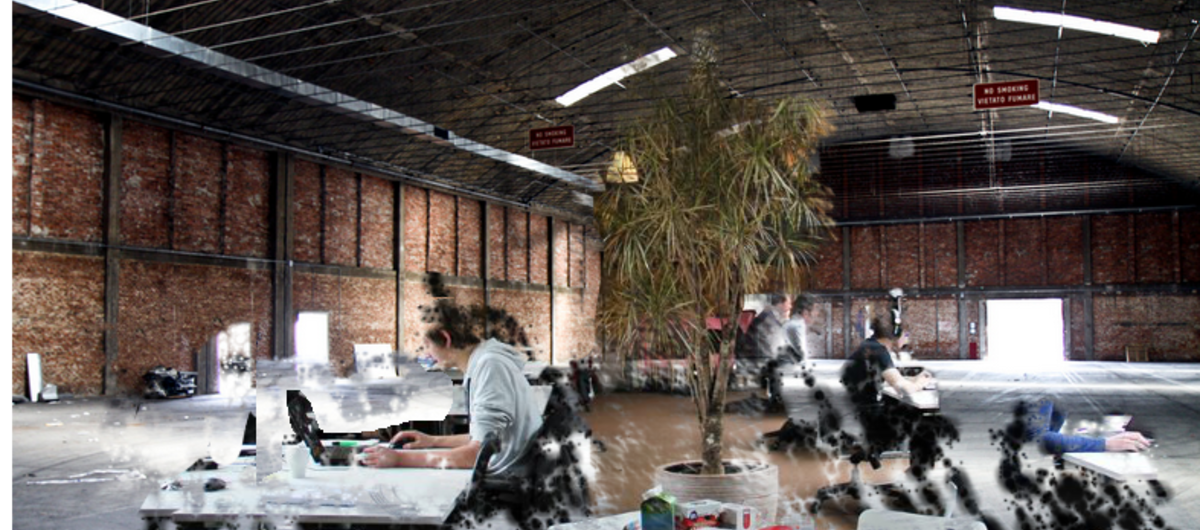First, calling on crowdfunding is a good solution for independently funded spaces wishing to remain independent. In addition, it is a great tool to mobilize not only coworkers but also all of the associated communities. Those who utilize this kind of space can commit to supporting this type of project.
Mobilizing the community
The coworking space co.up has managed to raise 7,950 Euros on the crowdfunding platform Pledgie, and as a result was able to renovate and build a top floor. Some loyal Co.up coworkers, even before the start of the campaign, had already given money and it was finally able to "succeed through support of other communities already wishing to benefit from this extra space," says Aleks, community manager of the space. As a result, Co.up was able to double in size.
As for other types of projects available on these platforms, it is possible to collect a substantial amount of money by involving communities. In 2010, NWC created its coworking space in New York by raising almost 20% of its total investment on Kickstarter. (i.e 17,000 to $100,000). The Notman House in Montreal, a space dedicated to supporting entrepreneurs, was able to purchase their space by collecting $120,000 of the $100,000 requested.
Create... or recreate your space
We often hear the good stories about crowdfunding platforms as opposed to the bad ones. In January 2010, okcCoCo had to close because of a conflict with their former sponsor. Yet two years later, thanks to a crowdfunding campaign, the founders of okcCoCo presented a newly realized space. Thanks to 87 donors the campaign was a success, exceeding the sum of the original $6,000 requested. Another story is that of the Founders Coworking space. After being devastated by a fire, the team decided to rebuild what had been destroyed by calling on its community for help.
Crowdfunding can also fund projects and spaces among the most original. For example, the Forage Kitchen presented their project as the first coworking space dedicated to cooking. The project involved more than 1,600 participants and $156,000 dollars in a period of just 45 days. Original or unusual projects often coast on these platforms. If you think you have an original idea, do not hesitate to try, because even breweries have crowdfunded their future coworking space.
T-shirts, cafés, offices and other rewards
For each campaign, the "rewards" granted are the most encouraging. If you supported the expansion of Bull City Coworking, and for enough money, you could have had your own office for 6 months free. Similarly, supporters of Seed who donated over $2500 would have been rewarded with free access to the coworking space for 1 year. A "reward" encourages generosity, knowing that normal access could cost you $2100.
But the rewards can also be fun and creative. For example, some spaces offer unlimited coffee for 1 month or 1 year, your name written in the lobby, free courses, or even a meal with the founders of the space. It seems that many project leaders are full of imagination to motivate their community, so why not organize a crowdfunding party in your future coworking space like Caffeine Spaces did.








